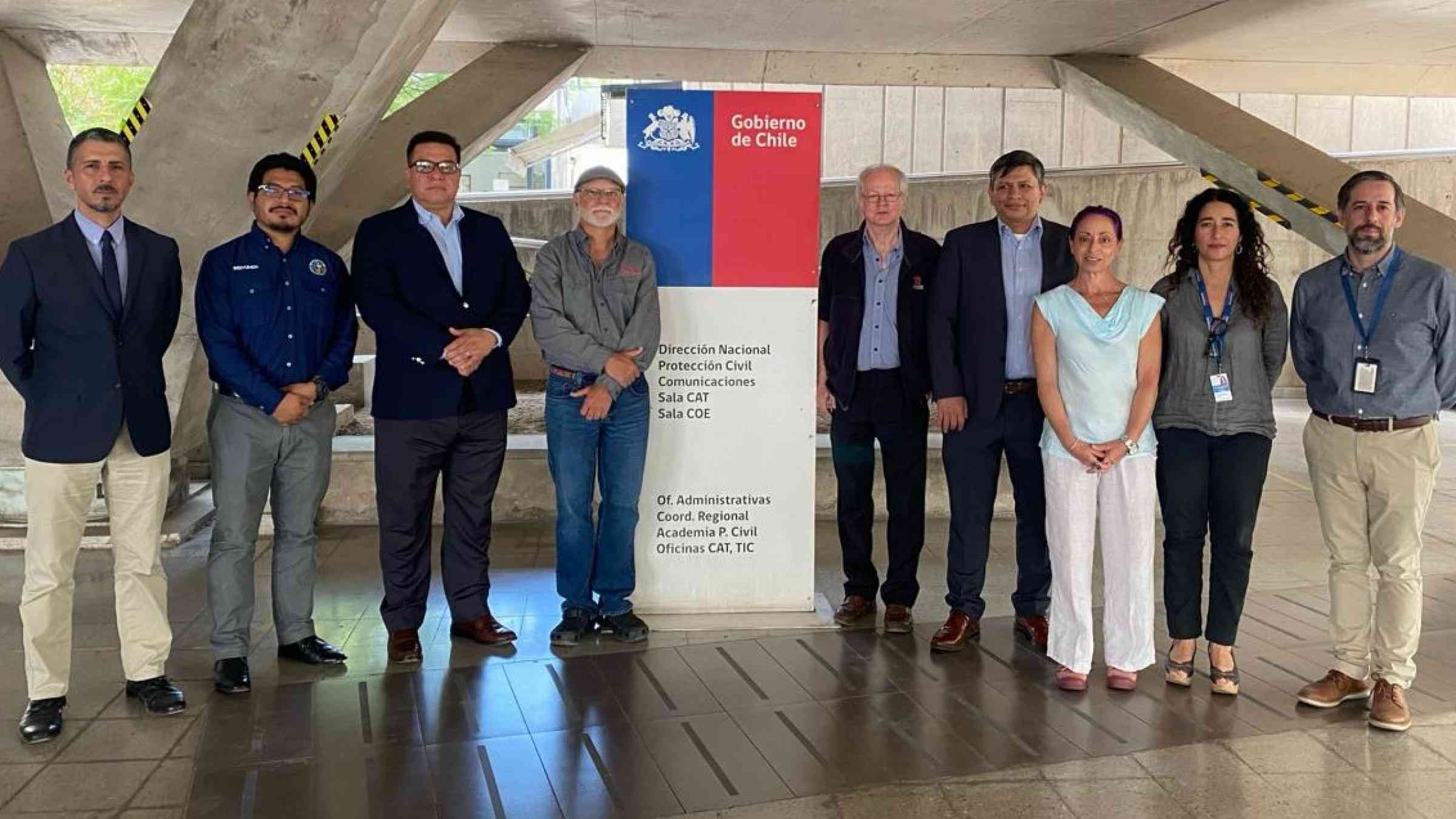Early warning systems benefit from shared knowledge.

Early warning systems can save thousands of lives and hundreds of billions of dollars. Their effectiveness depends on being people-centered and addressing multiple hazards. In short, they are the right tool to truly implement the principle of leaving no one behind. That's why representatives from various Central American institutions and organizations held an exchange and learning meeting on multi-hazard monitoring and surveillance with Chile's National Service for Disaster Prevention and Response (SENAPRED). The aim of this exchange is to strengthen cooperation among countries and foster shared learning on early warning in the region.
The visit, organized within the framework of the Swiss Agency for Development and Cooperation's (SDC) Central America Cooperation Program, with the support of the United Nations Office for Disaster Risk Reduction (UNDRR), showed that both Chile and Central American countries face similar challenges in risk management, albeit with their own particularities. In this regard, SENAPRED shared their experiences, knowledge, and best practices with Luis Amaya, Director General of Civil Protection, Disaster Prevention, and Mitigation of El Salvador; Luis Tun Aguilar, from Guatemala's National Institute of Seismology, Volcanology, Meteorology, and Hydrology; Marino Protti, from Costa Rica's Volcanological and Seismological Observatory; and Wilfried Strauch, coordinator of the Tsunami Advisory Center for Central America (CATAC).
Among the topics discussed were crucial aspects to strengthen early warning systems and disaster preparedness, the need to link risk knowledge information with modeling and forecasting, and the implementation of national protocols for monitoring phenomena. Additionally, the importance of establishing effective instrumentation networks and agile communication protocols to transmit warnings to both the population and potentially affected areas was highlighted. It was also emphasized the need to coordinate the communication of warnings with responsible institutions and to develop response strategies based on accurate data and forecasts. The discussion and exchange of these topics become even more relevant with the implementation of the Early Warning for All (EW4All) initiative, driven by the United Nations Secretary-General, Antonio Guterres.
EW4All is a global effort to ensure that all people are protected by early warning systems by 2027 and aims to reduce the impact of disasters and the vulnerability of populations through four pillars: improving disaster risk knowledge (led by UNDRR); detection, observations, monitoring, analysis and forecasting of hazards (led by the World Meteorological Organization); warning dissemination and communication (led by the International Telecommunication Union); and promoting community preparedness to respond (led by the International Federation of Red Cross and Red Crescent Societies). This initiative reflects a shared commitment of the international community to protect the lives and well-being of people against different hazards. Multi-hazard early warning systems are also a cost-effective investment: a 24-hour advance warning can result in a reduction of losses by up to 30% in a disaster.
Luis Doñas, in charge of International Affairs and Cooperation at SENAPRED, highlighted the opportunity to identify coincidences to work on mutual understanding. "This reciprocal knowledge is obviously what we are looking for, as it allows us to identify how, together with countries, but also within our multilateral institutional framework and with United Nations, we can effectively advance towards more concrete solutions to challenges that are certainly becoming increasingly urgent for risk management and reduction," said Doñas.
"We have shown a lot of interest as a country in institutionalizing a system that allows alerting all people, which not only goes hand in hand with the EW4All initiative but also allows solving very specific issues at the community level," said Luis Alonso Amaya, Director General of Civil Protection, Prevention, and Disaster Mitigation of El Salvador.
Nahuel Arenas García, chief of UNDRR - Regional Office for the Americas and the Caribbean, emphasized how the exchange between regions is key for effective risk reduction. "The exchange of lessons learned between Central America and Chile demonstrates the importance of South-South cooperation and triangular cooperation to advance and strengthen multi-hazard early warning systems," said Arenas García.
On the other hand, Chile's United Nations Resident Coordinator, María José Torres, emphasized that "one of the biggest learnings from the devastating fires that Chile faced in 2023 and 2024 has been the confirmation of the importance of preventive measures and early warning systems. These systems save lives, protect homes, and reduce the economic and environmental impact of disasters." In this regard, she highlighted that "Chile, through its experience, can lead the way to a safer future, demonstrating the importance of collaboration and shared knowledge in building a more resilient world."
"Reducing the vulnerability of people and communities to disasters, through early warning systems and other initiatives that generate resilience, is not only a humanitarian need but also an important element of development, by preventing millions of people from falling back into poverty due to the impact of disasters in Latin America and the Caribbean. These exchanges of experiences strengthen the strategies of countries and are very valuable for sharing knowledge and inspiring actions in this direction," said Raúl Salazar, United Nations Resident Coordinator in El Salvador.
The meeting agenda included discussions on key topics such as linking risk information, implementing common monitoring and alert protocols, instrumentation networks, communicating warnings to the population, and preparing for response based on data and forecasts. It is expected that the inputs generated during these two days will drive concrete actions in the participating countries and strengthen regional collaboration on early warning systems, anticipatory actions, and disaster risk management.